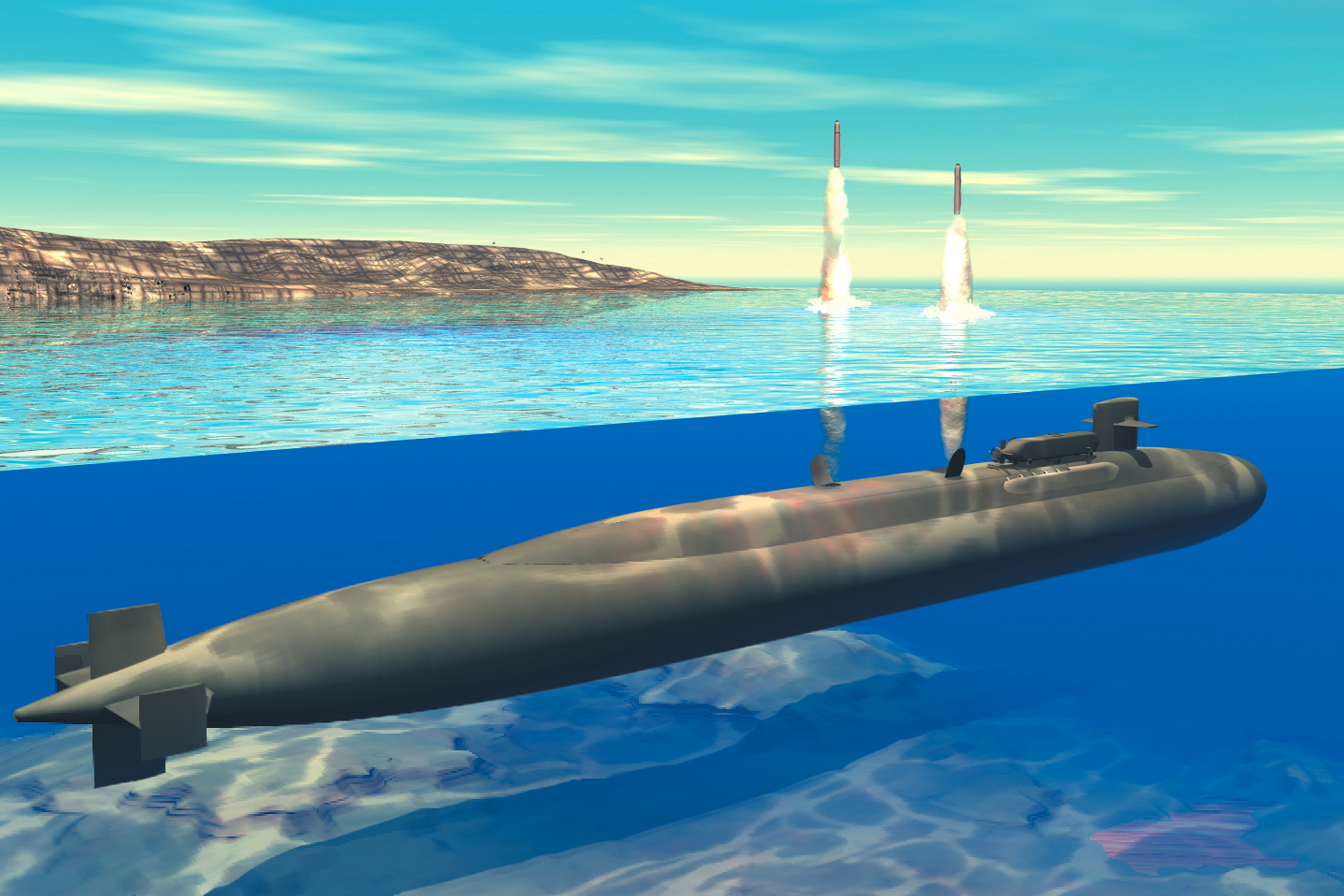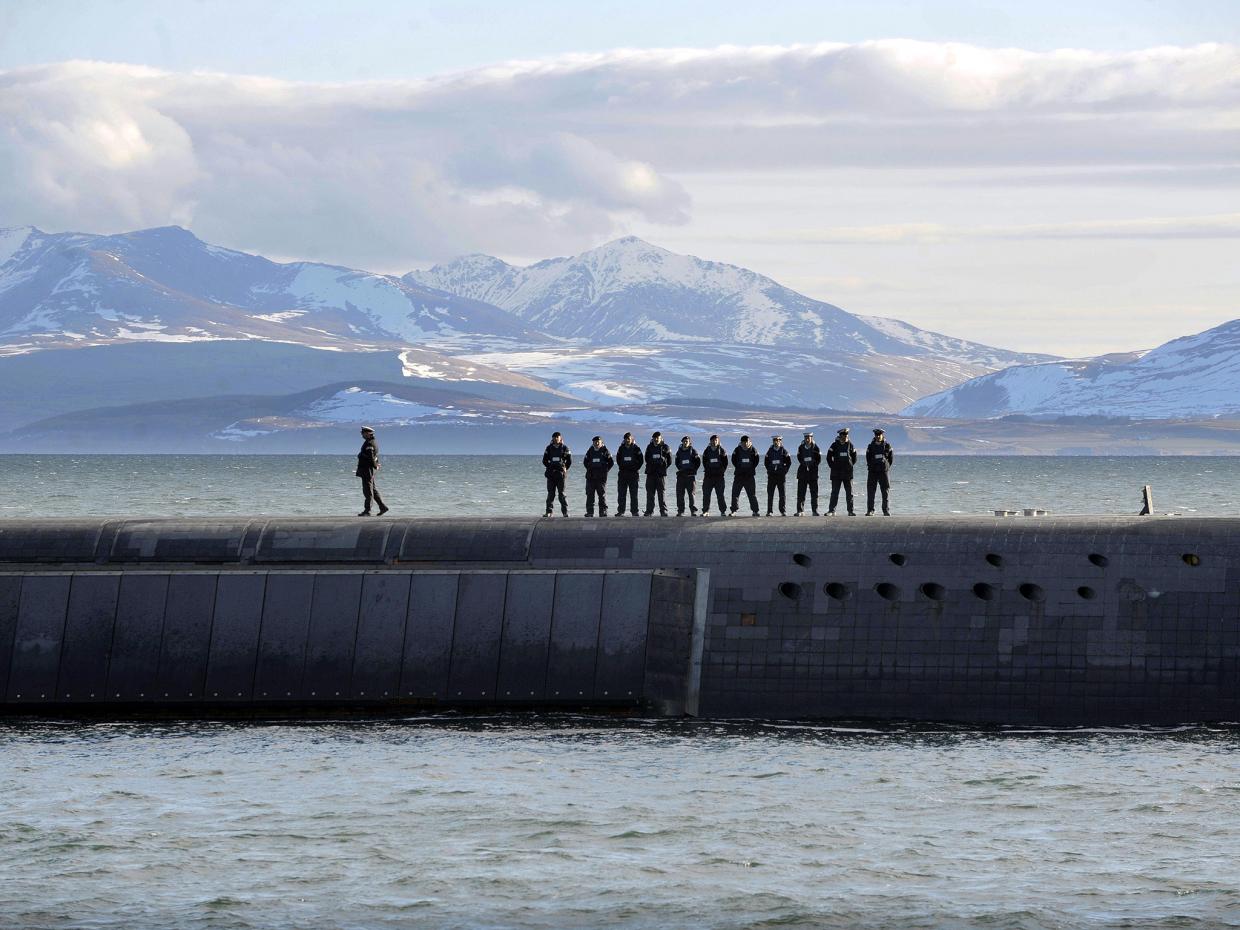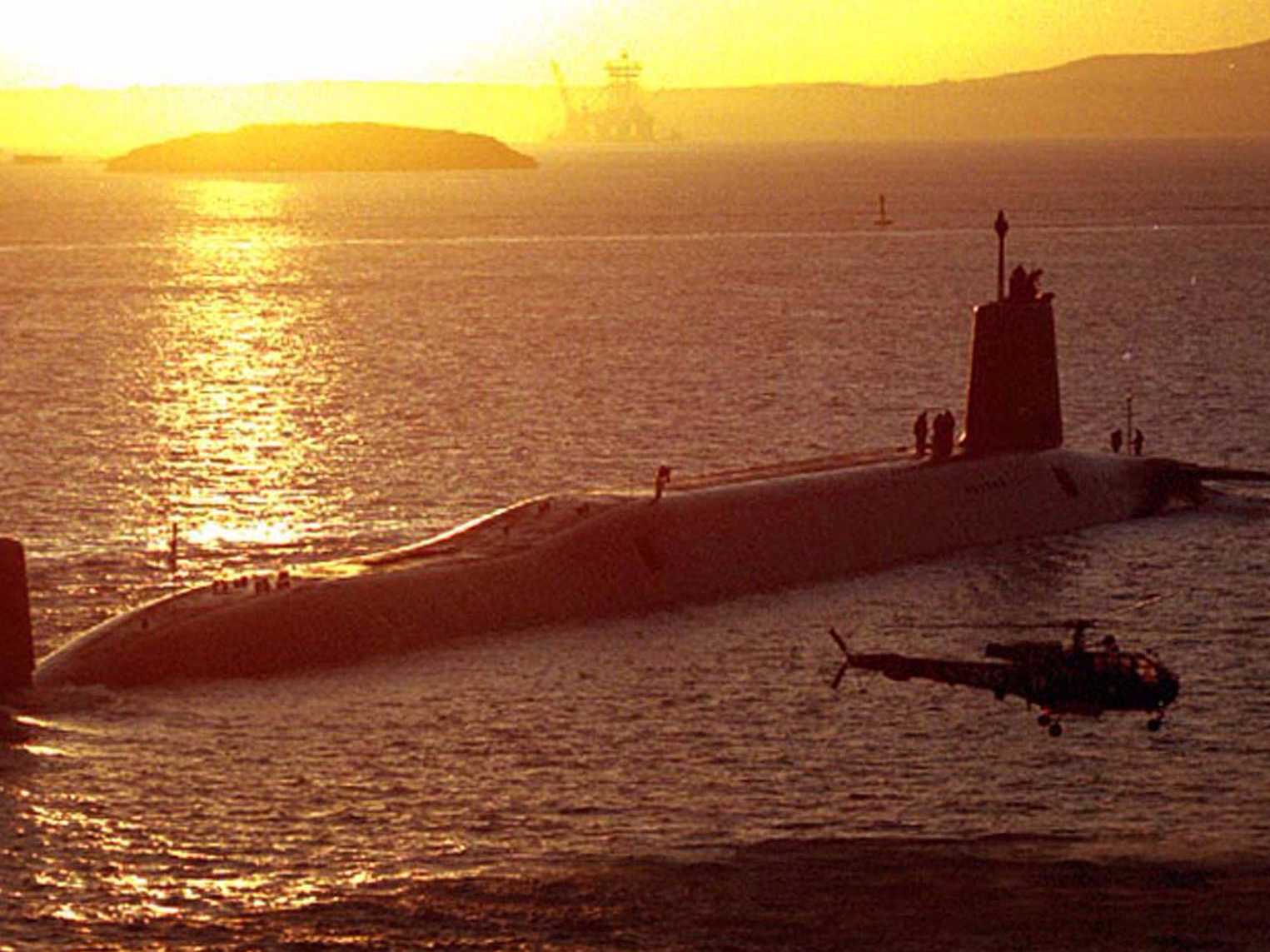This year Britain will decide whether to re-launch its nuclear submarine program and continue it until halfway through the 21st century. But last Saturday, the "largest demonstration in a generation" marched in London in a bid to #StopTrident, making clear the public's widespread opposition to the U.K. nuclear program. The rally included speeches by Labour leader Jeremy Corbyn and Nicola Sturgeon, leader of the Scottish National Party. Their message was blunt: to continue Trident would be insane.
Frozen Thinking
Since the 1960s, a handful of nations have had nuclear weapons capability to wipe out life. The most warheads continue to be held by the U.S. – the only nation to have ever used the weapons – and Russia. Britain, France and China have significant arsenals, as well as Israel, Pakistan and India. North Korea's recent provocations have also put it on the nuclear map.
Britain’s nuclear submarines are primed with 266 times the nuclear destruction that befell Hiroshima. This is the program the U.K. now wants to renew, strategically justified by the Cold War-era doctrine known as MAD, or Mutually Assured Destruction, which asserted that neither the U.S., USSR, nor their respective allies would launch a first strike due to the likelihood of all-out retaliation.
Key to this strategy was the ability to hide the weapons – for instance, in submarines – where they could remain effective, even if their state of origin was decimated. During the Cold War, MAD had acute flaws, not least that the end of the world could be triggered by the press of one button. The Cuban Missile Crisis in 1962 was the closest shave, during which one leader was apparently twitchy with amphetaminesand the other reportedly drunk. Oblivion was very narrowly avoided again in 1983, when the USSR interpreted a war simulation as the real thing.
The idea that certain states holding nuclear weapons create stability neglects how these programs encourage, and often facilitate, other states’ proliferation of those weapons. For instance, Israel and China gained nuclear knowledge from espionage and leaks, mainly from the U.S. In turn, China is implicated in supporting Pakistan’s nuclear weapons program, and Pakistan is believed to have enabled North Korea to gain access to nuclear technology.
MAD also neglects the risk of accident or sabotage. Nuclear accidents have proven catastrophic, as Fukushima and Chernobyl both showed. Additionally, Western states’ logic that, as dominant powers, they are entitled to have weapons when other nations in the global South are not, is inherently racist.
21st Century Insanity
Advances in undersea surveillance – such as underwater drones, sensors or satellites – also mean that hiding submarines is expected to become if it is not already impossible, making them even more useless as a deterrence. But the underwater weapons are nonsensical for other reasons, too.
Today, war is increasingly asymmetrical, or unconventional. Instead of states versus states, war increasingly involves non-state actors, such as the Taliban, al Qaeda and ISIS, who fall entirely outside of the MAD doctrine. The idea that nuclear weapons are redundant in today’s wars was admitted by the British establishment in a 2006 white paper, published in an effort to influence the decision about whether or not to renew Trident. In blunt terms, the report stated that no nuclear threats were visible for the next 30 years.
In reality, the U.K.’s largest nuclear threat is itself, whether through sabotage or accident. British navy whistleblower, William McNeilly, last year documented 30 serious safety and security lapses at Faslane in Scotland, the U.K.'s nuclear base. McNeilly suggested it was easier to get into Faslane than into some nightclubs, adding it was “a matter of time before we’re infiltrated by a psychopath or a terrorist.”
Regularly, the British military convoys nuclear weapons through Glasgow, Scotland’s largest city, which is one reason weapons are so unpopular there. Looking to the near future, with Scottish independence a likely possibility, if the U.K. goes ahead with its nuclear program it may need to abruptly find it a new home.
In the new climate of asymmetrical warfare, including terrorism, it seems counter-intuitive that politicians like David Cameron would still argue that nuclear weapons are increasing Britain's security. Often, the pro-nuclear case is pushed with the idea that the industry is necessary to maintain jobs and technological expertise.
But redirecting money, skills and energy from war (including nuclear weapons) into green technologies would reuse those skills and infrastructure while creating new jobs. As we have long known, the war industry is self-perpetuating, and more than half of all wars are fought for oil. Massive amounts of oil are used to fight those same wars, which worsens climate change and creates the condition for even further wars.
As many have argued, this cycle could be broken by redirecting billions of pounds from nukes into green technology. The only losers in a world with less war would be corporate profiteers.
The 1%’s Wet Dream
The unofficial all-included predicted price tag for Trident was recently increased to £167 billion. But that figure keeps rising, both its official and unofficial estimates. Clearly creating weapons to decimate life as we know it is expensive: this is nuclear science, after all. But these projects also give corporations the perfect means to do business with public money shrouded in secrecy, making oversight and scrutiny to identify corruption almost impossible.
From what is known, it is evident that capitalism and the U.K. nuclear state fuse seamlessly. Scotland’s non-corporate media CommonSpace recently revealed that 15% of Lords in the House of Westminster have business interests in nuclear weapons. Not only that, 41 U.K. financial institutions are attempting to profit from the nuclear program, including the Royal Bank of Scotland, which invests in 10 companies involved in Trident.
That the public effectively sponsors banks to profit from business of Weapons of Mass Destruction goes from madly sublime to crazily ridiculous. U.K. banks – even ones bailed out by the state – are even investing money into other states’ nuclear programs, including Russia.
The dependence of Russian and Western nuclear programs on the big banks contradicts a new narrative emerging in the corporate media: that we are entering a new Cold War. For if we do, one thing seems clear: that war will continue to facilitate MAP, or Mutually Assured Profits, for the 1%. And with real and present security threats to society in the form of wealth inequality and climate change, giving away more public money to the rich for their war machine is a ticket to destruction.
If you liked this article and want to see more original reporting by Occupy.com, PLEASE DONATE TODAY!
3 WAYS TO SHOW YOUR SUPPORT
- Log in to post comments


















